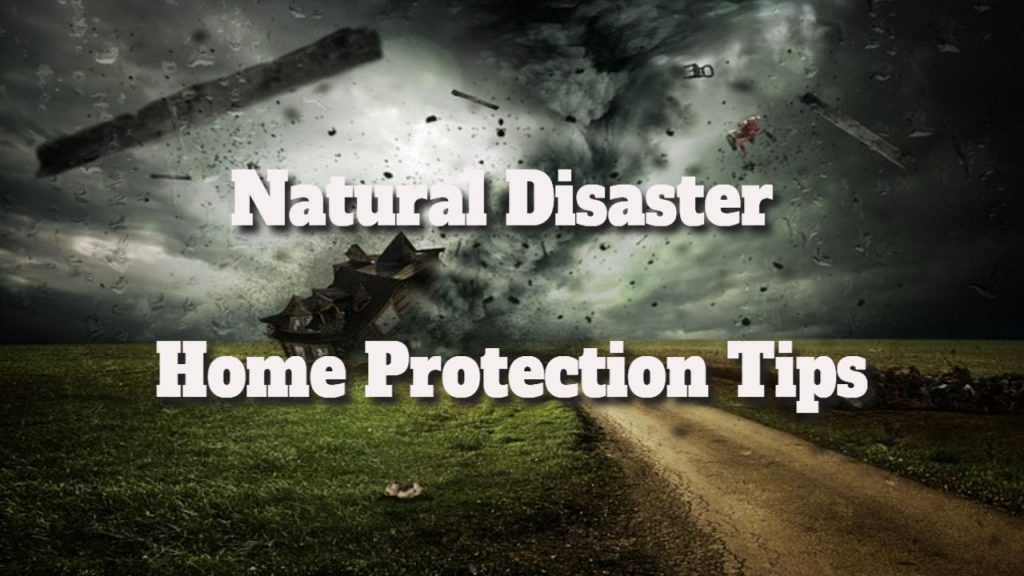Home Protection Tips for Natural Disasters
Essential Strategies for Protecting Your Home from Natural Disasters
Natural disasters are unpredictable events that can have catastrophic consequences for individuals, families, and entire communities. These emergencies endanger lives and lead to extensive property damage that can take years to recover. According to recent statistics, the financial impact of natural catastrophes and weather-related incidents in the United States is $23.46 billion annually. The most common culprits of destruction include floods, hailstorms, tornadoes, and earthquakes, each bringing unique challenges for homeowners. Consequently, everyone must adopt comprehensive measures to safeguard themselves and their property. This article aims to provide you with essential insights and actionable tips to prepare for these unpredictable events. Equipping yourself with the proper knowledge and tools can enhance your safety and potentially save your life in the face of nature’s fury.

Stay Informed and Prepared for Natural Disasters/
One of the most effective ways to reduce the risk of harm during a natural disaster is to stay informed. Keeping up with local weather reports and government updates is crucial for timely decision-making. Regularly monitoring trusted news sources helps you receive real-time information on potential threats, allowing you to prepare accordingly. If you prefer to avoid the news, consider subscribing to weather alerts or using apps that send notifications directly to your phone. In addition to staying informed, assembling a comprehensive home emergency kit is essential. This kit should include flashlights, batteries, first aid supplies, and non-perishable food to sustain you and your family during a crisis. By proactively preparing and remaining aware of your surroundings, you can significantly enhance your safety and readiness for any natural disaster that may strike.
Implement Effective Flood Prevention Measures for Your Home
Flooding can occur suddenly and with little warning, especially during heavy rainfall or severe storms. To protect your home from flooding, it is essential to understand how water flows and accumulates around your property. Assess the slope of your yard; a proper incline can help divert water away from your foundation, while flat areas may allow water to pool. You can implement several flood prevention strategies to enhance your home’s resilience. For instance, consider installing automatic drainage systems that activate when water levels rise. Elevate or securely anchor outdoor items such as propane tanks and patio furniture to prevent them from being swept away. Finally, if possible, design your home above the anticipated flood level, ensuring your living space remains secure even during extreme weather events.
Explore Additional Flood Defense Options:
Prepare Your Home Against Wildfire Threats
When it comes to wildfires, no home is entirely immune to danger, making it imperative to follow evacuation orders if issued. However, there are proactive steps you can take to reduce the risk of fire damage to your property. Start by creating a defensible space around your home, clearing away dead vegetation and any debris that could ignite. It’s also wise to relocate your firewood pile as far away from the house as possible and utilize fire-resistant materials in your roofing and siding. Establishing a safe zone—typically a 5 to 10-foot-wide area around your home—can significantly mitigate fire risks. In this zone, eliminate combustible materials, such as wooden patio furniture, and use non-flammable landscaping options like rocks or gravel instead of mulch. Taking these precautions can provide a crucial layer of protection for your home against the threat of wildfires.
Effective Hurricane Preparedness for Your Home
Many homeowners believe safeguarding their property against hurricane damage is impossible; however, this perception is misleading. While you cannot eliminate the risk of damage, you can take essential steps to minimize it. First, ensure all entry points, particularly windows and doors, are properly sealed before a hurricane strikes, as these are often the weakest points in your home. Installing plywood or storm shutters can prevent glass from shattering, keeping your interior safe. Additionally, secure any outdoor items that could become projectiles or float away during heavy winds or flooding. This includes garden furniture, toys, tools, and decorative items. Power outages are common during hurricanes, so unplugging all electronic devices and appliances is wise to protect them. A generator on standby can prevent food spoilage and maintain comfort until the power is restored.

Be Prepared for Tornadoes: Essential Safety Measures
Tornadoes can develop rapidly, often with little warning, so it is crucial to be always prepared. The first step in tornado preparedness is to secure any items around your property that could turn into dangerous projectiles during a storm. This includes outdoor furniture, garden tools, and other loose objects. If your budget allows, consider investing in impact-resistant windows and wind-resistant roofing materials when renovating your home. These improvements can significantly enhance your home’s ability to withstand high winds and flying debris, reducing the risk of extensive damage.
Additionally, create a designated safe space within your home where family members can gather during a tornado warning. This area should be away from windows and ideally located in a basement or small interior room on the lowest floor. Preparation and timely action can significantly increase your safety during tornado events.
Essential Emergency Pack: Be Ready for Any Natural Disaster
Regardless of the type of natural disaster that may strike, having a well-stocked emergency kit readily available is critical. This emergency pack should contain non-perishable food items sufficient to sustain each family member for several days and two to three litres of water per person. Additionally, include important documents, personal prescriptions, flashlights, and batteries to ensure you have everything you need during an emergency. While these items are essential, you may consider adding other valuable supplies, such as a multi-tool, a portable phone charger, and a first-aid kit to enhance your preparedness. It’s essential to keep track of your finances and emergency supplies. If you do not have a financial safety net, consider obtaining parametric insurance to cover potential losses related to natural disasters, such as earthquakes. By taking these proactive measures, you can ensure your family is well-equipped to handle any unforeseen emergencies.
Enhance Your Home’s Safety Features
Improving your home’s safety features is a crucial step in disaster preparedness. Consider installing metal gutters to manage water flow effectively and prevent pooling around your foundation. Metal strapping and ETICS (Exterior Insulation and Finish System) walls can bolster your home’s structural integrity against severe weather conditions. Repairing loose or damaged roofing is essential to prevent further issues during storms. If you live in a hurricane-prone area, consult a professional to install hurricane-resistant PV (Polyvinyl Butyral) windows. These specialized windows are designed with impact-resistant laminated glass and robust aluminium frames, offering superior protection against harsh weather conditions. Investing in these safety enhancements can significantly increase the longevity and resilience of your home against natural disasters.
Develop a Comprehensive Evacuation Plan
When disaster strikes, having a well-thought-out evacuation plan is essential. This plan should include multiple exit routes from your home and identify a safe meeting point for family members if you become separated. Ensure that everyone in your household knows the evacuation plan and how to execute it quickly and efficiently. Having a spare key or access method to your home is also a good idea, allowing for a quick exit when needed. Even a temporary barrier outside your property can provide valuable seconds to prepare for an emergency. If you reside in areas prone to natural disasters, contacting local damage restoration companies for guidance on preparing your home and accessing essential safety equipment may be beneficial. These professionals can offer valuable insights tailored to your specific needs and regional risks.
Understanding the Importance of Insurance for Your Belongings
The significance of having comprehensive home insurance coverage cannot be overstated. Natural disasters can lead to extensive damage from wind, rain, frost, and lightning, making it essential to have appropriate coverage in place. Before purchasing insurance, research providers offer protection against natural calamities. Some insurance companies may provide excellent customer service but lack comprehensive coverage options, so assessing your policy’s fine print is vital. Remember that insurance rates can fluctuate based on the severity of damage and repair costs, so it’s advisable to regularly consult with a qualified insurance specialist to ensure your coverage remains adequate. Although you cannot control the unpredictable nature of disasters, you can take proactive steps to minimize risk, protect your home, and safeguard your family’s well-being.
References
be prepared for emergencies https://prepare.campaign.gov.uk/

